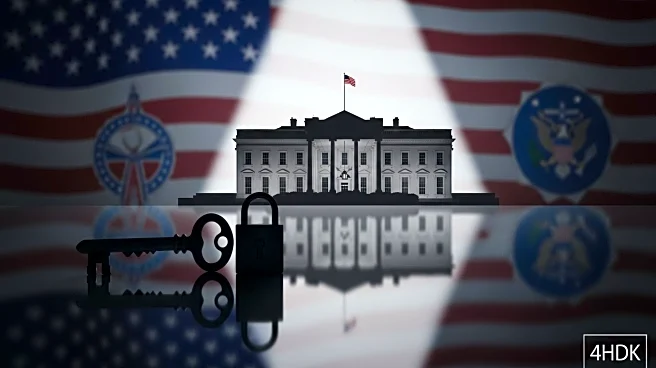What is the story about?
What's Happening?
The White House has issued a new executive order aimed at imposing strict penalties on states that engage in hostage-taking. This move comes in response to ongoing international incidents involving the capture of foreign nationals. The executive order underscores the U.S. government's commitment to protecting its citizens and allies from such threats. The recent release of Israeli-Russian researcher Elizabeth Tsurkov, who was kidnapped in Iraq by the terrorist group Kataib Hezbollah, highlights the urgency of addressing this issue. The executive order is part of a broader strategy to deter hostile actions against U.S. citizens and to reinforce international norms against hostage-taking.
Why It's Important?
The executive order represents a significant step in U.S. foreign policy, emphasizing the protection of American citizens abroad. By imposing penalties on states involved in hostage-taking, the U.S. aims to deter such actions and hold accountable those responsible. This policy could impact diplomatic relations with countries accused of supporting or tolerating hostage-taking. It also sends a strong message to terrorist organizations and rogue states that the U.S. will not tolerate threats to its citizens. The move is likely to be welcomed by allies and human rights organizations advocating for stronger international measures against hostage-taking.
What's Next?
The implementation of the executive order will require coordination with international partners to ensure its effectiveness. The U.S. may engage in diplomatic efforts to build a coalition against states that engage in or support hostage-taking. Monitoring and enforcement mechanisms will be crucial to the success of this policy. The administration may also face challenges in balancing diplomatic relations with countries implicated in such activities. The effectiveness of the executive order will be evaluated based on its ability to prevent future incidents and secure the release of hostages.
















